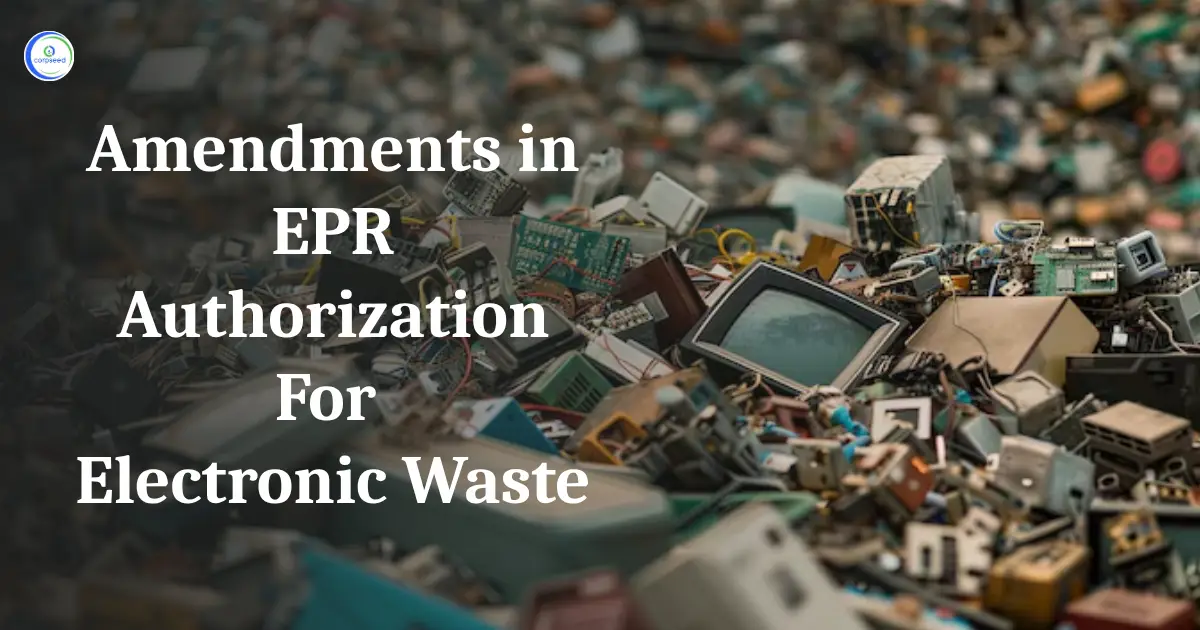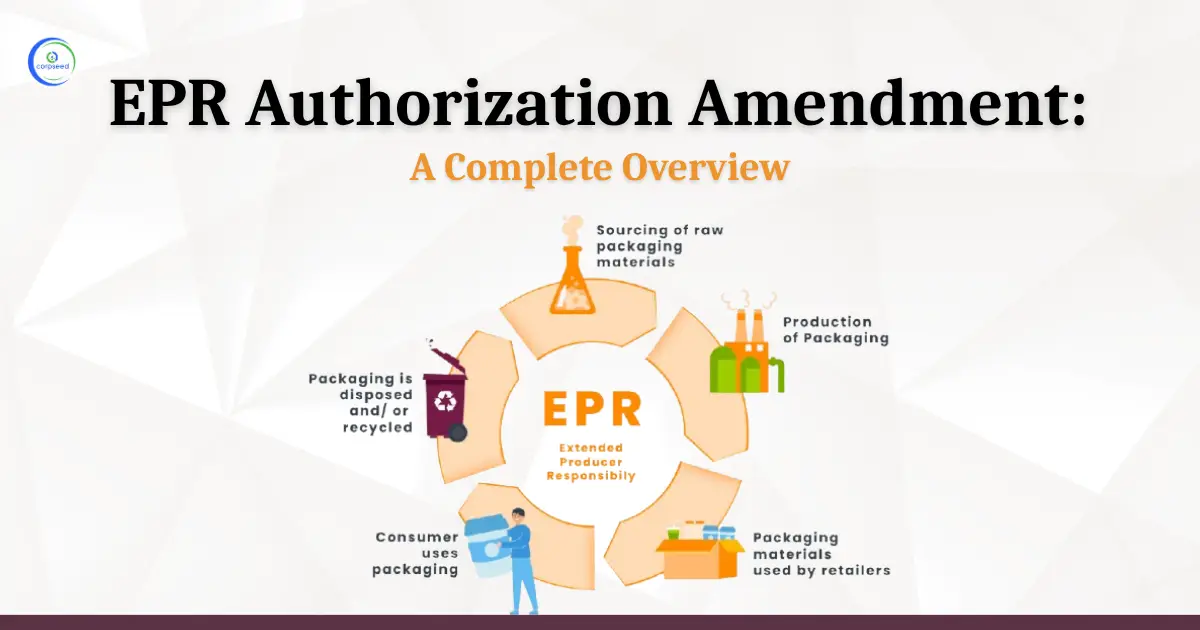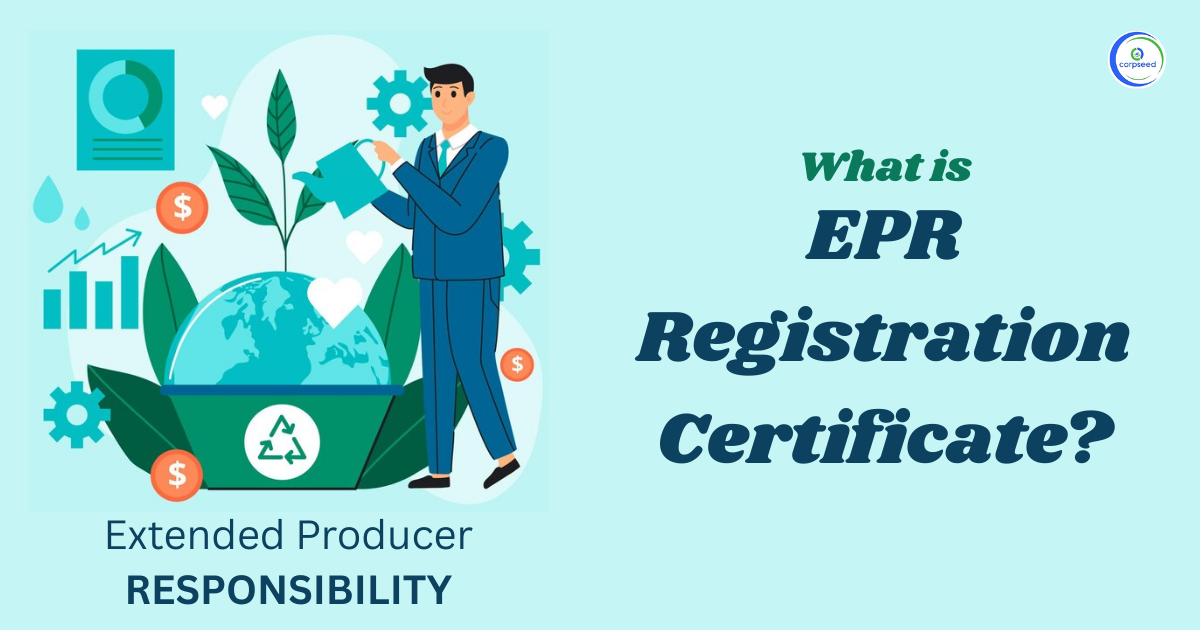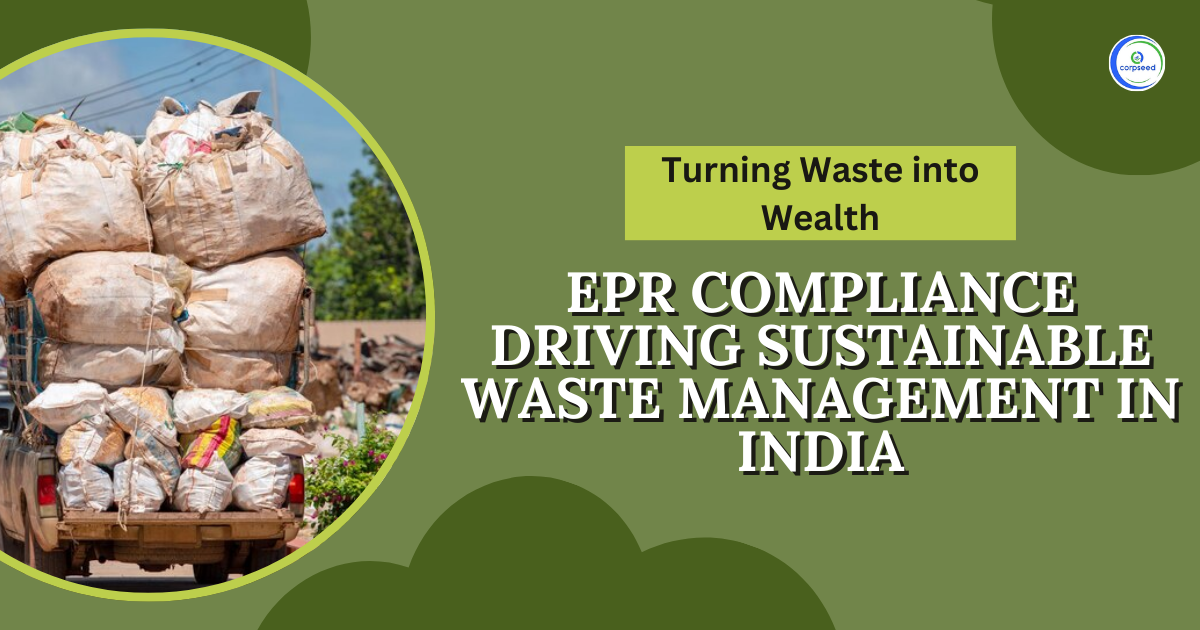An EPR certification from the CPCB guarantees that the manufacturer will ensure proper waste management from its products. So, this works towards greater recycling as well as proper waste disposal and enforcing the guidelines required for the environment. First, a registration is done on the CPCB portal, then all the essential documents are prepared to be submitted to the CPCB, after which it goes to further approval. Therefore, the certificate ensures the decrease of waste and protects the environment besides providing a good reputation for an organization. Furthermore, it enables access to markets where EPR certification is desired.
What is an EPR Certificate?
It gives a certificate from the Central Pollution Control Board of India for Extended Producer Responsibility, which postulates that the producer is responsible for handling waste that results from selling its products, thereby reducing environmental impact.
Table of Contents
- What is an EPR Certificate?
- Why Is EPR So Important?
- Who needs an EPR Certificate from CPCB?
- Benefits of EPR Certification from CPCB
- Steps to Obtain an EPR Certificate from CPCB
- Documents Needed for EPR Registration from CPCB
- Challenges in EPR Certification from CPCB
- Role of CPCB
- Steps for Successful EPR Certification from CPCB
- Conclusion
--------------Blog Contact Form-------------
Why Is EPR So Important?
EPR is important because of the following reasons:
- Ensures Responsibility: The producer directs a good during its entire lifecycle from manufacture to final disposal.
- Waste Reduces: Encourages recycling thus reducing the waste in landfills.
- Promotes Sustainability: Facilitates sustainable practices through preservation of the environment.
- Compliance with Law: Ensure that the producers meet all environmental compliance requirements.
Who needs an EPR Certificate from CPCB?
Any producer, importer, or brand owner that generates waste from their products needs an EPR certificate. These are a few examples:
- Electronics: Manufacturers of electronic devices, such as cell phones, computers, and televisions.
- Plastics: manufacturers of plastic goods and packaging.
- Batteries: Manufacturers and importers of batteries.
Benefits of EPR Certification from CPCB
- Legal Compliance: An organization shows Environmental law compliance that saves the company from fines or legal penalties.
- Environmental Protection: Converts waste into other utilities to reduce environmental pollution and conserves natural resources through recycling.
- Brand Reputation: Increases the reputation of the organization as an environmentally responsible business, which will result in consumers feeling a sense of trust and loyalty.
- Market Access: A company is given market access which requires EPR certification, thus giving an increase in business development and growth opportunities.
Steps to Obtain an EPR Certificate from CPCB
- Registration on the CPCB Portal
Register at the home page of CPCB, proceed to the EPR portal, and complete all other relevant details about your business and products.
- Preparation of Documents
Gather all documents such as the registration proof of the business, detailed information on products manufactured or imported, and recycling and disposal plans including all aspects of proper waste management.
- Submit the Application
Apply for an EPR certificate by filling out an online application form, uploading relevant documents, and payment of applicable fees.
- CPCB Scrutiny
After the submission of the application, the CPCB will scrutinize it and sometimes seek additional data and files. In addition, the CPCB may also inspect facilities to check on compliance.
- Approval &Issuance
If the application fulfils all the parameters, CPCB will provide approval, and the EPR certificate will be issued, thereby making the producer handle their waste legally and responsibly.
Documents Needed for EPR Registration from CPCB
- Firm Registration Certificate
This is proof that your business was registered successfully. It tells everybody that your company is legally established and permitted to operate in the country. Ensure it is current and reflects all information about your business correctly.
- Catalogue of Products
For example, provide a comprehensive list of the products your company manufactures or imports. The list should contain the names, descriptions, and categories of the products. Having this list helps assess the type and quantity of waste generated by your products.
- Waste Management Plan
Develop a holistic waste management plan, which is an outline of how the company will handle the waste that its products generate. The outline in this regard should be for every part of the product lifecycle, including production, usage, and disposal. This plan should include recycling, waste reduction, and linkages with specialized waste management companies. This plan goes on to show you are committed to sustainability in the environment.
- Financial Documents
To prove that your company can manage its waste efficiently, attach financial documents. These include financial statements, budgets, waste management investments, and infrastructures for waste management. These proofs ensure that your company has the resources needed to execute its waste management plan.
- Compliance Certificates
Such certificates proving your company's compliance with other relevant regulations can also be included. Examples may be environmental clearances, ISO certifications, or other industry-specific compliance documents. Of course, having these certificates demonstrates the adherence of your company to established standards and regulations.
Challenges in EPR Certification from CPCB
Complexity in Regulation: Induction of complex regulations needs perception that sometimes is hard to understand and act on, by the manufacturers who need to keep a check on any regulatory updates.
Documentation and Reporting: It is very time-consuming to draw up-to-date industrial enterprise-related documentation and demands careful record-keeping to draw up quarterly reports to CPCB.
Cost: The cost of equipment and systems in waste management is significant and almost too expensive for small businesses.
Role of CPCB
The functions of CPCB in the EPR certification process include:
- Regulatory Body: The body lays down the regulations and guidelines regarding EPR.
- Approval Authority: It conducts examination and acceptance of applications for EPR certificates.
- Monitoring and Enforcement: It checks compliance with the regulations and takes punitive measures against offenders.
Steps for Successful EPR Certification from CPCB
- Familiarize yourself with Regulations
Understand, clearly the EPR regulations that apply to your sector. Seek legal advice to ensure that you conform to all applicable laws and regulations. You must be aware of the changes and updates of regulations so that you can follow them precisely.
- Develop a Waste Management Plan
Develop a systemic waste management plan covering how you would manage waste in your products. This would include various methods to recycle the waste product, proper ways to dispose of the waste, and collaboration with companies dealing with the waste.
The appropriate waste management plan will not only keep the organization adhering to regulations but also facilitate sound practices while conducting your business.
- Record Keeping
Keep records of all waste-related activities. These records must be up-to-date and easily accessible when asked by regulatory agencies. Keeping proper records reflects a responsible attitude toward waste management and can also help to prevent potential compliance issues.
- Hire consultants
Leverage the expertise of consultants who specialize in EPR certification services. Their professionalism will ensure that the certification for a certain business will indeed go through smoothly and quite efficiently. Their insights will help you deal with such questions as complex regulatory requirements in compliance.
Conclusion
EPR certificate, now indispensable for producers, importers, and brand owners across India, ensures that companies handle their wastes responsibly and comply with the prescribed environmental standards. The process is multi-step: from registration, documentation, submission, and review, to approval. Despite all this, the benefits of an EPR certification include legal compliance, environmental protection, an improvement in brand reputation, and gaining access to the market. This makes it a very worthwhile investment. Thus, the right way to do this is through the tips for successful certification: navigating through the process effectively and contributing to a better future.
This portion of the site is for informational purposes only. The content is not legal advice. The statements and opinions are the expression of author, not corpseed, and have not been evaluated by corpseed for accuracy, completeness, or changes in the law.
BOOK A FREE CONSULTATION
Get help from an experienced legal adviser. Schedule your consultation at a time that works for you and it's absolutely FREE.





.webp)



